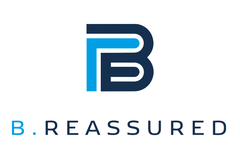Basic pension
The basic pension, also known as the “Basis-Rente” or “Rürup-Rente,” is a private pension scheme in Germany designed to provide supplementary retirement income. In summary, the basic pension is a voluntary private pension plan in Germany that offers tax advantages and flexibility in investment options. The basic pension is a much better alternative to the German state pension scheme, especially if you are self-employed and do not have to contribute in the state pension. Additionally, the basic pension scheme is particularly attractive to high-income earners looking to enhance their retirement savings.
Summary of the basic pension scheme
- Voluntary pension plan: The basic pension is a voluntary private pension plan that individuals can opt for in addition to the state pension system.
- Tax benefits: It offers significant tax advantages, with contributions being tax-deductible up to certain limits. This tax benefit makes it particularly attractive to high-income earners.
- Long-term savings: The basic pension is intended for long-term retirement savings, and contributions are locked in until retirement age.
- Investment options: Individuals can invest their basic pension contributions in various financial instruments, including insurance products and investment funds, allowing for flexibility in choosing the investment strategy.
- Lifetime payments: At retirement, individuals can receive lifelong pension payments from the basic pension. There is also an option to choose a lump-sum payment if desired.
- Age requirements: The basic pension is typically suitable for individuals who plan to retire later in life, as it aims to provide supplementary income for retirement.
- Regulation: It is regulated by the German government to ensure that providers meet certain standards and that tax benefits are applied correctly.
- Not Means-Tested: Unlike the basic pension, the basic pension is not means-tested, and eligibility is not based on income or assets.
Protection of capital
The capital you build up in a basic pension is protected extremely well:
- Tax benefits: Contributions made to a basic pension plan are tax-deductible up to certain limits. This tax advantage encourages individuals to save for retirement and provides a financial incentive to contribute regularly.
- Creditor protection: In many cases, the capital within a basic pension plan is protected from creditors. This means that, in the event of financial difficulties or bankruptcy, the funds in the basic pension plan will be shielded from creditors’ claims
- Lock-in period: Contributions made to a basic pension plan are intended for long-term retirement savings, and there are penalties for early withdrawals or surrendering the policy before reaching the retirement age specified in the contract.
- Investment oversight: The investments within a basic pension plan are typically managed by regulated insurance companies or financial institutions. These entities are subject to oversight and regulation by German authorities to ensure that the investments are managed prudently and responsibly.
- Lifetime payments: At retirement, the capital in a basic pension plan is used to provide lifelong pension payments rather than a lump-sum payout. This ensures that the capital continues to provide income throughout the retiree’s lifetime.
Are you self-employed and have not dedicated yourself yet to a pension? Are you a high-income earner and feel like you pay way too many taxes? Feel free to contact me for a more detailed explanation and to calculate the numbers!

